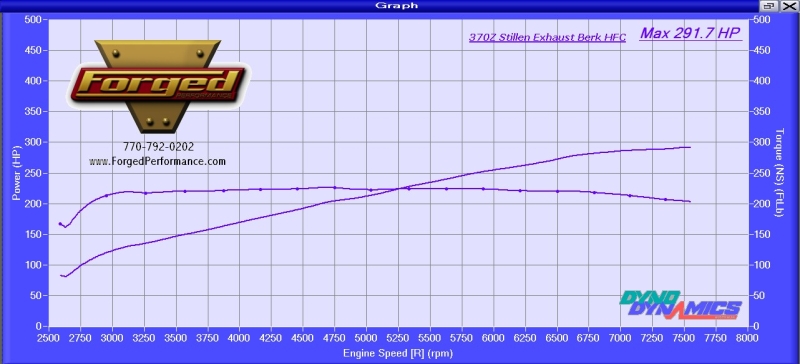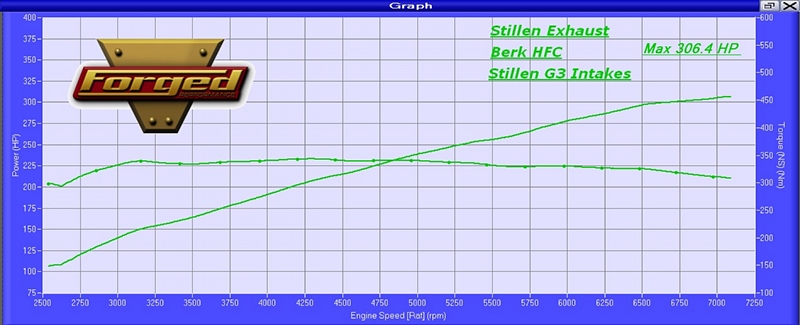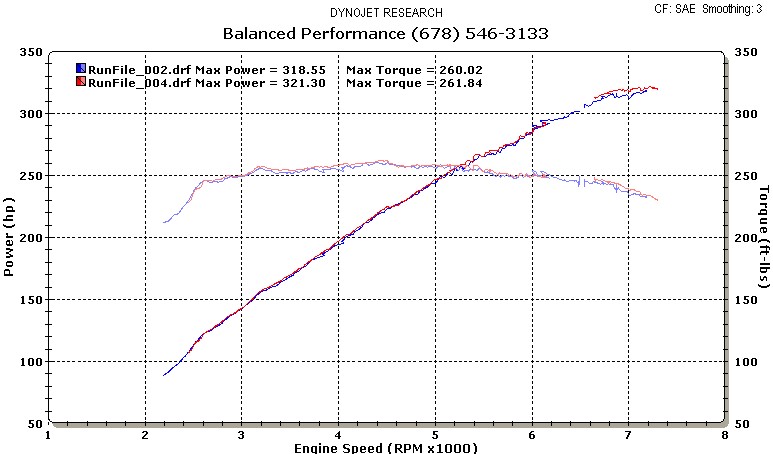Okay guys, here are the results.
First, here's the dyno I did a couple of weeks ago on a Dyno Dynamics dyno. Max = 291.7whp. My only mods were the Stillen cat-back exhaust and the Berk HFCs.

Here's today's dyno, back on the same dyno, with the addition of the Stillen G3 intakes. Max =
306.4whp.
 Net gain = 14.7whp.
Net gain = 14.7whp. (In case any of you are wondering why the gain is lower than RCZ's, keep in mind that I already have exhaust mods in place, whereas RCZ was running the stock exhaust setup. It is normal for gains on individual components to diminish as they are combined with other mods.)
For comparative purposes, I also went and got a dyno on a DynoJet. The DynoJet run was performed about 2.5 hours after the Dyno Dynamics run. No change to ambient temperature, but my oil was running about 20 degrees hotter from driving across town. Not sure if 20 degrees is going to make much difference, but I figure I may as well mention it.
Here's the DynoJet chart.
Max = 321.3whp. So if we want to use this data as guidance for future comparisons between the two brands of dyno, we can say that Dyno Dynamics numbers come in lower than DynoJet numbers by approximately 4.6%. We can also say that to convert a DD number to a DJ number, apply a multiplier of 1.0486 to the DD number to get an approximate DJ number. (But take this guidance with a grain of salt. I'm beginning to think that there's really no way to get a standard multiplication factor that is accurate most of the time. There's just too many variables. For example, I think the multiplication factor depends on the amount of HP the car has, which means that the multiplier that holds true for a 300hp car is different than that which holds true for, say, a 200hp car.)
I know, blah blah blah . . . show us the freakin' graph already, right? :stfu:

I took video. I will post the video later tonight.
Don't forget the rep points, people!
